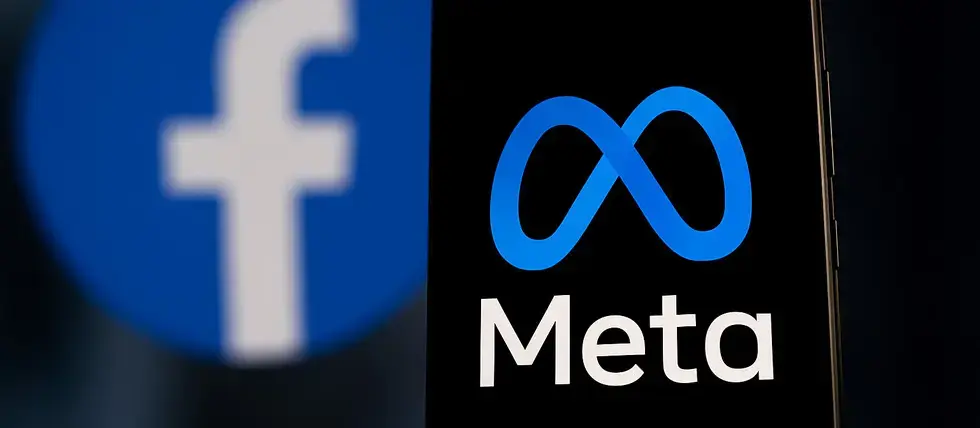Meta Faces Scrutiny over Revenue from Potentially Dangerous Ads
Reuters says roughly 10% of Meta’s revenue may come from high-risk advertisements, including illegal gambling and scam-linked sites.

Documents reviewed by Reuters indicate that between 2021 and 2025, a significant share of ad income on Meta platforms – Facebook and Instagram in particular – may be classed as “high risk”, encompassing illegal gambling, fraudulent schemes and other problematic services. Media analysis of those internal materials estimates the figure at about 10% of the company’s ad revenue, a sum Reuters suggests could amount to as much as $7 billion across the period.
Related: Judge Orders Tech Giants Apple, Google and Meta to Court over Illegal Gambling Claims
The materials reportedly show internal debate inside Meta about the trade-off between removing ad categories that pose integrity risks and the potential impact on the company’s bottom line. Reuters reports some of the flagged creative and landing pages were not auto-identified by the company’s internal warning systems, despite internal estimates that many such pages had a high likelihood – up to 95% in some cases – of being fraudulent.
Meta disputed what it described as a one-sided interpretation of the documents. Andy Stone, a Meta spokesperson, told Reuters that the evaluation in question was intended to validate planned investments to strengthen content integrity. "The assessment was done to validate our planned integrity investments – including in combating frauds and scams – which we did. We aggressively fight fraud and scams because people on our platforms don’t want this content, legitimate advertisers don’t want it, and we don’t want it either", Stone said.
Despite the company’s public position, the internal review reportedly concluded that, when it comes to advertising for scams or illicit services, it can be easier to place such ads on Meta than on rivals such as Google. That finding has upped pressure on Meta from regulators and civil-society groups who argue the platforms are not moving quickly enough to stop harmful ads from reaching users. The scale of these operations – and how Meta profits from them – was detailed in documents reviewed by Reuters.
More Business
Regulatory Pressure and Industry Response
Governments and enforcement bodies in a number of jurisdictions have already confronted Meta over related concerns. Malaysian authorities have publicly urged the company to clamp down on illegal online content, while Brazilian prosecutors have in the past ordered the rapid removal of what they regard as unlawful gambling promotions. Regulators in other markets – including the UK and several US states – have also flagged online ad fraud and illegal gambling as priorities for consumer protection.
A former senior manager responsible for ad safety at a major social platform, speaking on condition of anonymity, said the documents appear to reveal a familiar tension: "Companies often run profitability analyses when they consider tightening enforcement. The difficult judgment is whether short-term revenue loss is acceptable to reduce long-term risk to users and legal exposure. If enforcement is inconsistent or slow, bad actors will keep exploiting the gaps."
Industry analysts note that large platforms face complex technical and legal hurdles when policing ads at scale. Automated systems can miss sophisticated landing pages or fast-changing creatives, and manual review is resource-intensive. At the same time, leaving risky ad streams unchecked can attract regulatory action, reputational damage and legal liabilities that ultimately threaten long-term value.
For advertisers and affiliates working in high-compliance sectors – financial services, health products and gambling – the Meta revelations are a warning. Platforms, regulators and trade groups may now accelerate cooperation around ad transparency, verification of advertiser identities, and clearer rules for which offers may be promoted.
What happens next will depend on three forces: how aggressively Meta follows through on the integrity investments it says it has made, the willingness of regulators to impose penalties or tighter oversight, and whether competitors and payment processors raise the commercial cost of hosting or serving questionable ads. Industry watchers say that even incremental policy changes could cut off profitable but illicit revenue streams, but only if enforcement is consistent and backed by clear penalties.
RELATED TOPICS: Business
Most Read
Must Read
 Interviews
Interviews
Exclusive Interview: Levon Nikoghosyan Shares AffPapa Winning Formula for Successful iGaming Events
Dec 03, 2025 Interviews
Interviews









Review this New Post
Leave a Comment
User Comments
Comments for Meta Faces Scrutiny over Revenue from Potentially Dangerous Ads